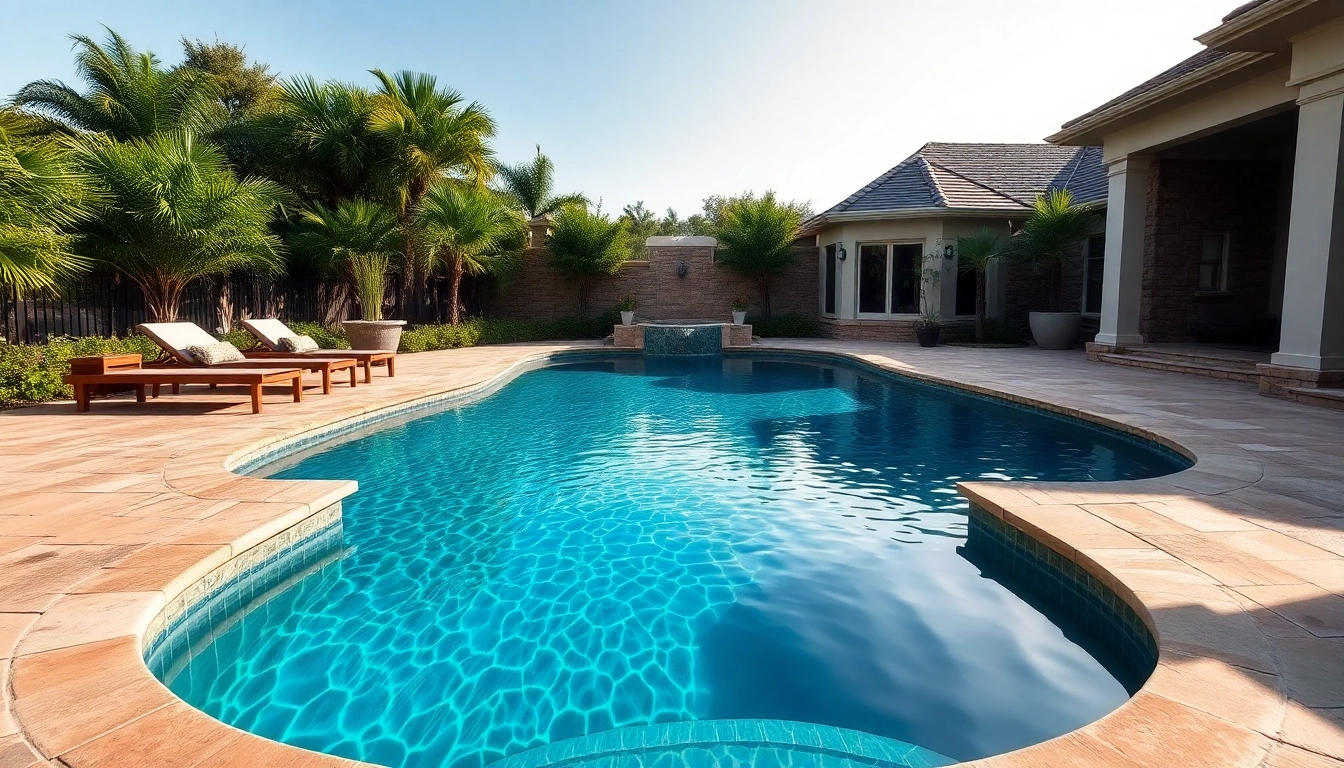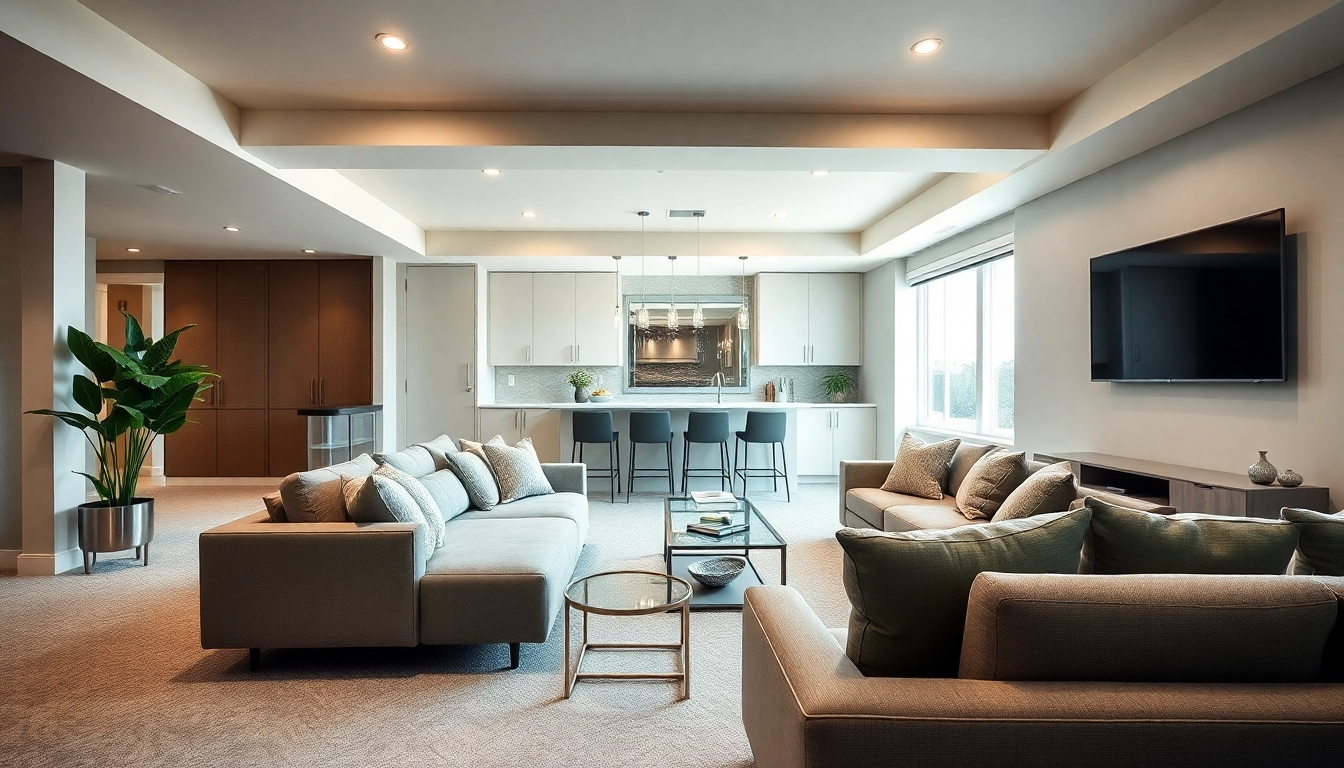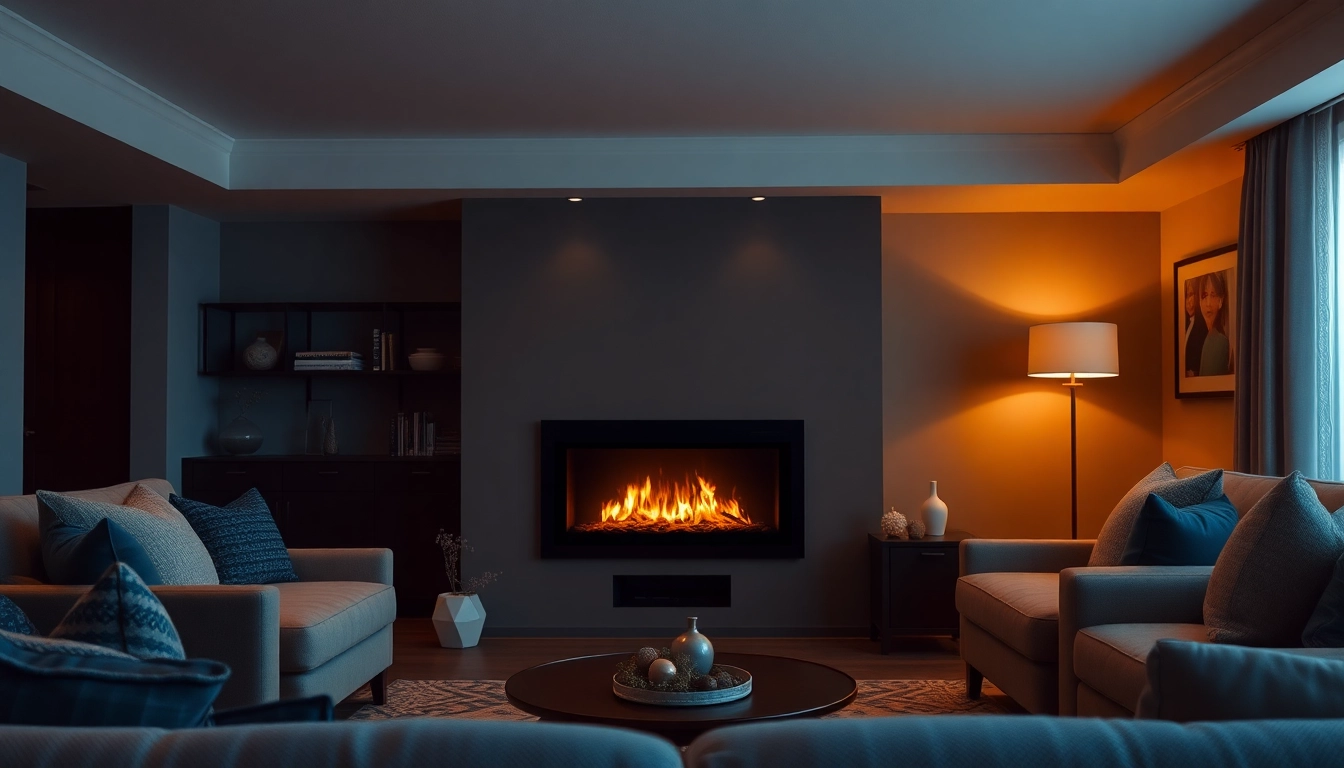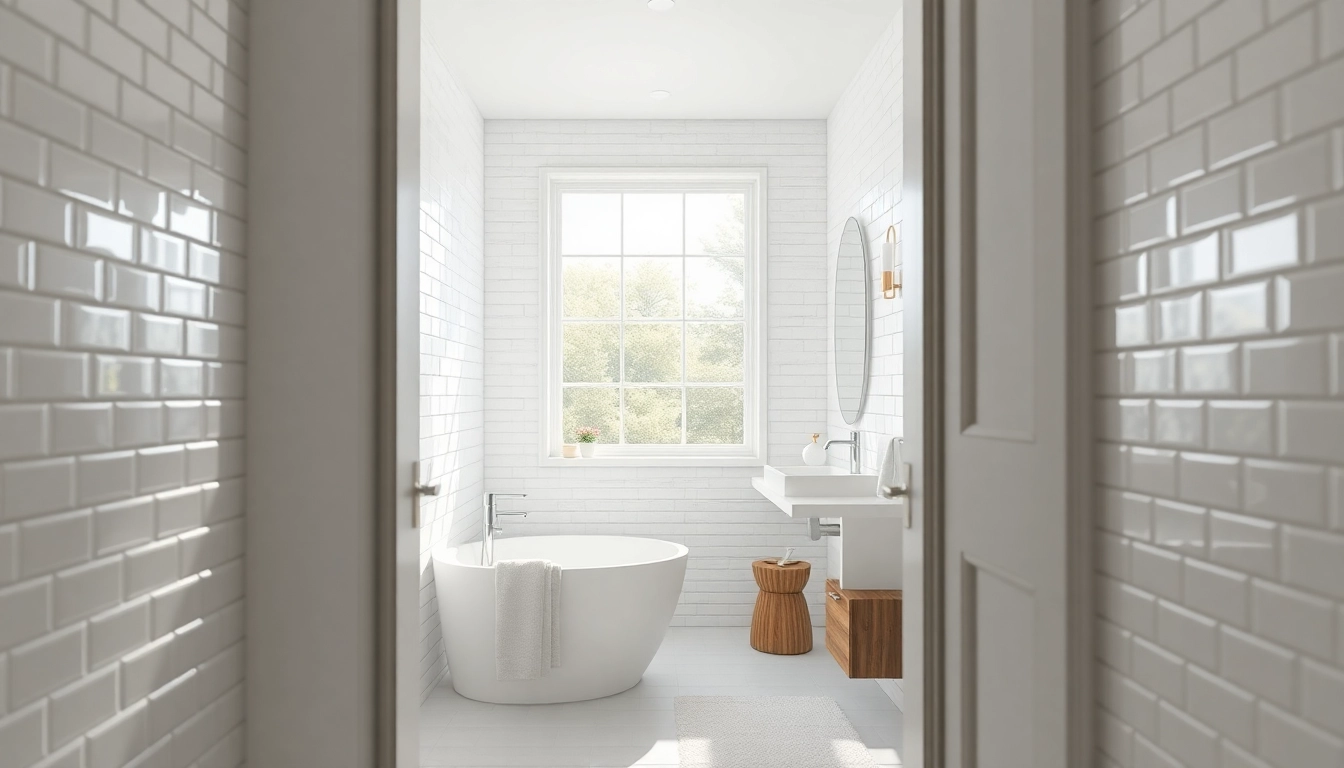Understanding Custom Pools
What Defines a Custom Pool?
A custom pool is a swimming pool designed and constructed according to the unique preferences, requirements, and lifestyles of the homeowner. Unlike standard or pre-fabricated pools that come with fixed shapes and dimensions, custom pools are tailored specifically to fit the aesthetic, functional, and environmental considerations of the property. Each custom pool presents an opportunity for creativity, allowing homeowners to incorporate specific features:
- Unique design elements: From naturalistic designs that mimic lakes or beaches to modern geometric shapes, the design can be wholly original.
- Personalized features: Integration of waterfalls, fountains, lighting systems, and even swim-up bars are common in custom pools.
- Size and shape variations: They can fit any space requirement, providing a solution for both small and large backyards.
Benefits of Choosing a Custom Pool
Opting for a custom pool carries numerous advantages. Here are some key benefits that underline why a personalized approach makes sense for prospective pool owners:
- Customization: The ability to tailor the pool to specific desires allows for personal expression and functionality that mass-produced pools cannot match.
- Enhanced property value: A well-designed custom pool can significantly boost the market value of a property, transforming from a standard outdoor feature to a luxurious oasis.
- Optimized space usage: Custom pools can be designed to fit snugly into various landscapes, maximizing available space without overcrowding.
- Eco-friendly options: You can incorporate energy-efficient systems, such as solar heating and advanced filtration processes, which are not only sustainable but also cost-saving in the long run.
Common Custom Pool Designs
Custom pool designs can vary widely, influenced by location, homeowners’ tastes, and available space. Here are some popular styles:
- Infinity Pools: These pools create the illusion of water that extends to the horizon, making them especially popular for properties with a view.
- Geometric Pools: Clean lines and defined shapes give a modern feel. Common shapes include rectangles, squares, and other angular constructs.
- Naturally Inspired Pools: Mimicking natural bodies of water, these pools integrate stones, plants, and varying depths.
- Freeform Pools: These pools feature organic shapes, leaning into curvy edges and spacious designs that blend effortlessly with landscaping.
Design Considerations for Your Custom Pool
Size and Shape: Finding Your Ideal Pool
The size and shape of your custom pool are critical considerations that will affect its functionality and aesthetics. Here are factors to keep in mind:
- Space Availability: Assess your outdoor space carefully to determine how large or small your custom pool can be.
- Usage Purpose: Will it be primarily for recreation, exercise, or relaxation? The desired use could inform its dimensions.
- Surrounding Environment: Consider how the pool shape complements the exterior architecture of the home and landscaping.
Materials and Finishes for a Durable Pool
The materials used in building a custom pool not only determine its durability but also influence the overall design and experience:
- Gunite: This mixture of cement and sand can be shaped into any form, making it a versatile option for custom projects.
- Fiberglass: Pre-molded fiberglass pools offer rapid installation but may limit custom design options beyond their shapes.
- Vinyl Liner: These pools often come with lower installation costs and customizable patterns, providing a cost-efficient alternative.
- Tile and Stone Finishes: Using natural stones or vibrant tile patterns can enhance the aesthetic appeal and longevity of the pool.
Incorporating Landscaping into Your Pool Design
The surrounding landscape plays a pivotal role in enhancing the visual appeal and functionality of a custom pool. Effective landscaping can provide necessary privacy, shade, and beauty. Consider the following:
- Water Features: Integrating waterfalls, fountains, or koi ponds can create a tranquil environment while adding visual interest.
- Plant Selection: Choose native plants that thrive in your climate for a sustainable alternative. They can create a lush backdrop for the pool.
- Hardscaping: The use of decking, patios, and walkways can improve usability, providing essential lounging or gathering areas.
Enhancing the Custom Pool Experience
Essential Features for Modern Custom Pools
Modern custom pools can be outfitted with a variety of features that enhance their functionality and appeal. Some essential features to consider include:
- Heating Systems: Extend your swimming season with appropriate heating solutions that provide maximum comfort throughout the year.
- Energy-efficient Pumps: These can reduce energy costs while maintaining effective filtration and circulation for your pool.
- Safety Features: Consider fencing, covers, or alarms to ensure safety, especially if children or pets are present.
Lighting and Water Features that Impress
Lighting and water features can significantly elevate the ambiance of your custom pool. Here’s how:
- LED Lighting: Consider color-changing LED lights for a visually dynamic nighttime experience, allowing for different moods and occasions.
- Sculptural Water Features: Waterfalls or jets can create relaxing sounds and add movement to the pool area.
- Fire Features: Integrating fire pits or bowls near the pool provides warmth and a sense of luxury after sunset.
Custom Pool Automation and Technology
Today’s technology allows for the automation of various pool functions, enhancing comfort and usability. Consider these options:
- Smart Controls: Mobile apps can be used to manage heating, cleaning, and lighting remotely, adding convenience to pool ownership.
- Automated Cleaners: Investing in robotic or suction cleaners can simplify maintenance, ensuring your pool stays clean with minimal effort.
- Water Quality Monitoring: Smart sensors can continuously monitor water chemistry, making pool management easier and safer.
Budgeting for Your Custom Pool
Estimating Costs: Materials, Labor, and Maintenance
Creating a budget for your custom pool involves estimating a wide range of expenses, including initial construction and ongoing maintenance:
- Construction Costs: These depend on the size, materials, and features of the pool. A standard range for concrete pools can vary from $30,000 to over $100,000 depending on complexity.
- Installation of Features: Special features like waterfalls, lighting, or custom landscaping can raise the total significantly.
- Ongoing Maintenance: Regular costs such as cleaning, chemicals, and electricity should also be factored into your long-term budget.
Financing Options for Your Custom Pool Project
Building a custom pool is a significant investment, and many homeowners seek financing options to manage costs effectively. Some popular routes include:
- Home Equity Loans: Utilize the increased home value as collateral for loans that often come with low-interest rates.
- Personal Loans: Unsecured loans can provide the necessary funds, albeit often at a higher interest rate compared to secured loans.
- Pool Financing Companies: Specialized lenders offer financing specifically for pool construction, often with flexible terms tailored for homeowners.
Long-Term Value of Investing in a Custom Pool
A custom pool can provide long-term value beyond just leisure. It can enhance your quality of life as well as your property’s marketability:
- Return on Investment (ROI): A well-designed pool can recoup 50% to 70% of its initial cost when you sell your home, depending on the local market.
- Family and Community Benefit: Custom pools often become a focal point for family gatherings and community parties, providing social value as well.
- Increased Lifestyle Quality: The health benefits of regular swimming, relaxation space, and backyard enjoyment can significantly enhance day-to-day living.
Maintenance and Care for Your Custom Pool
Cleaning Techniques for Custom Pools
Regular maintenance is crucial for keeping your custom pool in peak condition. Here are essential cleaning techniques:
- Skimming: Regularly remove surface debris with a skimmer net to prevent algae formation and enhance water cleanliness.
- Brushing: Use a pool brush to scrub the walls and floor to dislodge dirt and prevent algae buildup.
- Vacuuming: Utilize automatic or manual vacuum systems to clean the bottom of the pool effectively.
Seasonal Maintenance Tips
Custom pool maintenance can vary by season. Here’s how to ensure your pool is ready for any weather:
- Spring Prep: Empty any debris, test water chemistry, and clean the filtration system before use.
- Summer Care: Monitor water levels and quality regularly, as usage increases. Keep filters running more actively during this season.
- Winterizing: Properly close your pool at the end of the season, balancing chemical levels and ensuring pumps are drained to prevent freezing.
When to Hire a Professional for Pool Maintenance
While many tasks can be done by homeowners, certain situations may warrant professional assistance:
- Complex Issues: If you notice severe problems, such as leaks or equipment failures, professionals can diagnose and rectify these issues efficiently.
- Regular Services: Many homeowners opt for professional cleaning and maintenance services to ensure optimal health and safety of their pool.
- Chemical Balancing: If unsure about water chemistry, consulting a professional can ensure safe and effective treatment of pool water.



